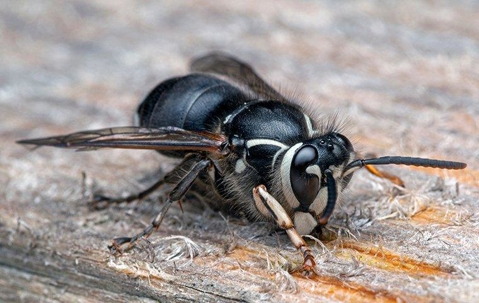The last thing anybody wants to worry about when they’re enjoying some nice weather is getting stung by wasps. But these buzzing pests have put a damper on many outdoor gatherings, and those who are allergic to their venom will thank you for keeping wasps away from the Sacramento family barbecue or big outdoor wedding. To stay safe, it’s important to know what you can do to protect your yard from an invasion in the first place.
What You Need To Know About Wasps
Did you know that the term “wasp” applies to hundreds of different types of flying, stinging insects? A lot of people think wasp is just another name for a yellow jacket, but the term includes varieties of bees and hornets, too. All of the following are common varieties to encounter:
- Bees: Both honeybees and bumblebees are considered wasps, even though they sting the least and tend to die after attacking a target. While bumblebees are furrier, both bee varieties are fuzzy, making them excellent pollinators as the particles cling easily to their bodies.
- Yellowjackets: Now we’re moving into the nasty ones. Like bees, yellow jackets have black-striped bodies. Unlike bees, they don’t die after one sting, making them more aggressive and hazardous. People also form allergies to the common chemical compound they possess.
- Hornets: Hornets come in all shapes, sizes, and colors, and we learn about more troublesome migrating varieties every few years. Suffice it to say, you don’t want them around, and they are considered to be the most aggressive of wasp species.
Beneficial Doesn’t Mean Safe
While you don’t want wasps around, they do serve an important function as pollinators: helping to spread the growth of plants and crops. With their hairy bodies and penchant for harvesting pollen, wasps serve an important part in the cycle of life. Even the wasps that aren’t great pollinators, like hornets that lack fuzzy hairs, can be beneficial since they often hunt and kill the kinds of pests that eat right through crops.
Now, just because wasps serve a purpose other than to sting you doesn’t mean you want to take the chance. Keeping them off your property will keep you safe and them in environments where their important work is more appreciated.
Wasp Prevention For Your Yard
Depending on what they’re hunting for -- flowers or bugs -- wasps can be attracted to a yard for any number of reasons. Generally speaking, though, all wasps are looking for areas where they can build hives and have easy access to food sources. As such, all of the following are useful steps for wasp prevention:
- Landscaping: Wasps make their hives in trees or foliage that provides shelter from the wind and sun. Keeping trees and bushes trimmed down will make your plants less attractive as nesting sites.
- Water features: Nearly all pests are attracted to areas with moisture since they need to stay hydrated just like the rest of us. Not only are wasps themselves looking for water, but so are the bugs they hunt. Remove standing pools or puddles, and consider keeping water features dry to discourage pests.
- Yard treatments: If you want to truly get rid of wasps -- and keep them gone -- you need to partner with local pest professionals who can regularly inspect and treat your lawn to protect against all kinds of invasive pests.
Safe Removal From Pro-Active
Luckily, you have a local resource that provides all you could ever need for complete and proper pest control. Whether wasps or other bugs are already buzzing around your property, or if you just want to get started on preventative measures, our helpful and friendly staff can assist you and answer any questions you might have.
Don’t let your yard become a breeding ground for stinging wasps, turn to Pro Active Pest Control today.

